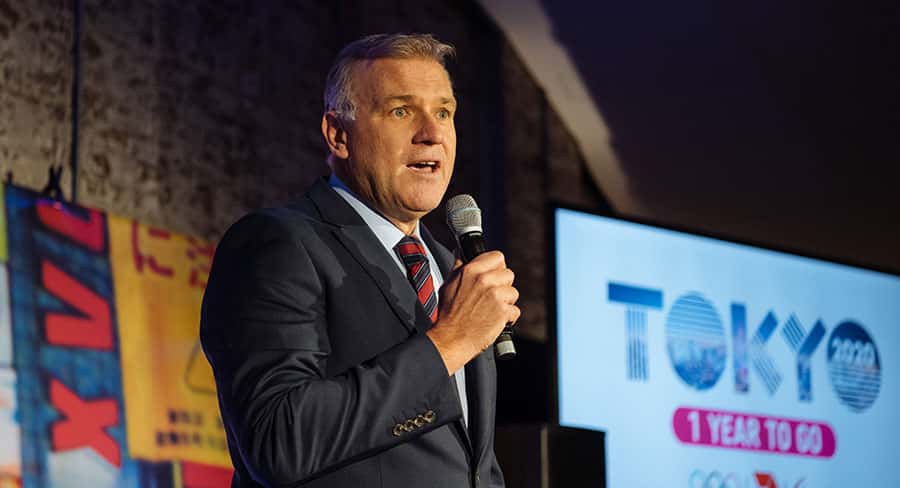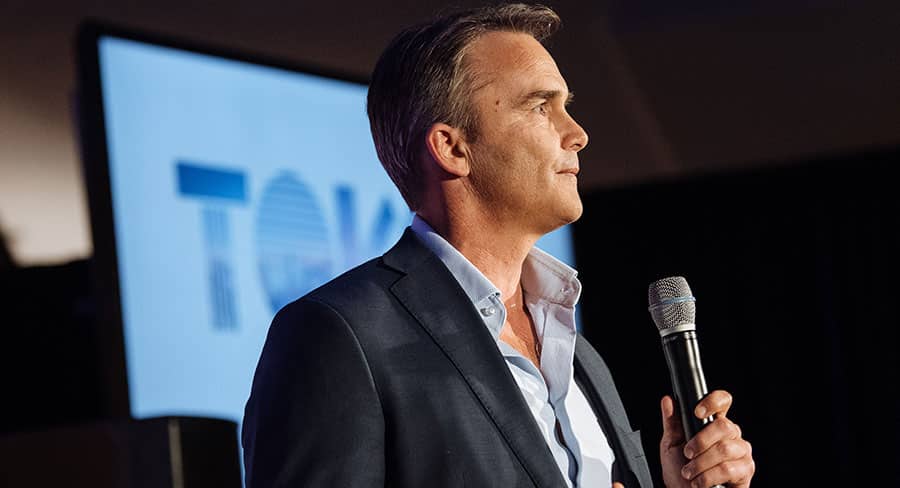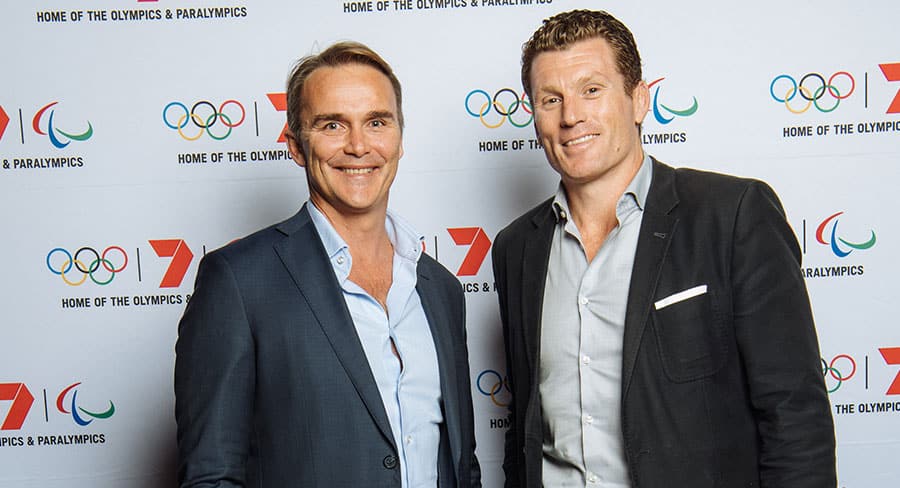It is 12 months to the day until the opening ceremony of the 2020 Tokyo Olympic Games and the Australia rights holder is taking full advantage of its link with the most prestigious sports branding you can get.
This week Seven launches The Olympics Channel on 7plus, which will broadcast until the Tokyo games start. It will run a feed that comes from the IOC that tells the stories about the athletes and the Olympics. Some of the Olympic partners will be able to run messages on the channel.

Seven’s Jim Wilson hosting Seven’s Tokyo 2020 launch
Although Seven has traditionally been the home of the Olympics in Australia, that hasn’t always been the case.
Nine has the rights to London 2012 and 10 was the rights holder for the Sochi 2014 Winter Games. The rights returned to Seven for Rio in 2016 and the PyeongChang Winter Olympics in 2018. Seven also had the Commonwealth Games that year on the Gold Coast.
Tokyo is the last event under Seven’s current IOC contract. The network won’t speculate on negotiations to continue the relationship.
The Tokyo games is the 20th anniversary of the Sydney 2000 Olympics and Seven calculates that Tokyo will be much bigger – both in terms of audience and advertising partnership dollars.
“The 2020 games will have the largest audience for any event in the history of media in Australia and it will be the largest digital event in history,” Seven chief revenue officer Kurt Burnette told Mediaweek.

Seven’s Kurt Burnette at Seven’s Tokyo 2020 launch
You couldn’t have a better Olympics promoter than Burnette who told Mediaweek Tokyo will be his 13th Olympics (summer and winter) since 1992 Barcelona.
He is reluctant to reveal too much about discussions with major commercial partners, but 12 months out he hinted he is more advanced with those partners than Seven ever has been previously.
He noted there were more opportunities than ever before. Just one daytime spot will reach a huge audition and there is much opportunity across the TV channels and digital.
As far as calculating how Seven will make money from its Olympic relationship, Burnette said: “We look at Olympics Games over the whole year to make sense of these investments. Every sport has its price and if it stacks up financially then it is the right thing to do for us. We think these games will deliver a great financial success for the network.
“The scale of this event means there has been nothing like it this decade and there will be nothing like it in the next decade. It’s a significant moment in media.”
Factors boosting the audience include the one-hour time difference with Japan, the way Seven will deliver the Games and the bigger Australian population.
The coverage on Seven will use “megawalls” on its linear channels to push people toward digital streams at different parts of the day.
“That’s not something that is easy to do, but we have learnt about that from Rio,” said Burnette.
Something else that Seven learnt in Rio is that people won’t pay to watch Olympic coverage. Seven offered a subscription tier that didn’t attract many subscribers. People will have to “pay” in a different way for full digital access for Tokyo. But the currency will be their email and private information instead of dollars.
There will be limited access available to people who don’t sign in, but to access everything you need to be a 7plus subscriber. That will give viewers as much as another 2000 hours of content plus access to 4K coverage and program guides. “The cost of entry for that is simply personal information – age, gender and location,” said Burnette. “That is powerful for us and for the consumer it is free.”
Seven is promising advertisers that during the Tokyo Olympics Seven will command a minimum 60% commercial share in every part of the day. It is also forecasting a 70% share of BVOD during that time.
Seven is also promising advertisers less clutter during the games. “The broadcasts will carry the least amount of messaging for any Olympic Games.”
Burnette said Seven has only been in market talking to potential partners for five or six weeks.
—
Top Photo: Seven’s Kurt Burnette with Starcom’s Toby Barbour
